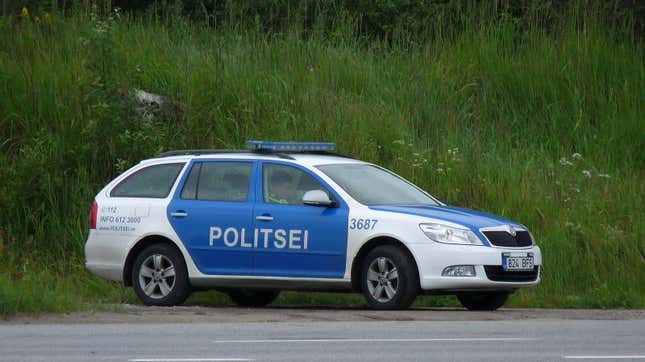
Getting your first speeding ticket is never fun. For many (myself included) it’s a first brush with the law. A growing-up experience that’s as painful as they come, bruising ego and checking account alike. Estonia has an idea to soften the blow, though. They’re swapping fines for a time out.
According to a report from ERR, the Estonian government broadcaster, a pilot program has police testing the new measure along the road between Tallinn and Rapla in the center of the small Baltic country.
As part of the plan, first-time speeding offenders will be offered a choice between a time out or a fine. An advisor for Estonian police told ERR that many drivers are likely to engage in conversation with the officers present, giving the force better insight into the reasons drivers exceed the limit. He continued to say that the program could help develop ways to help change driver behavior that work better than the fines currently in place.
The program has two tiers, with those caught traveling above the limit by 20 km/h or less subject to a 45 minute wait along the shoulder, with those caught exceeding the limit by 21-40 lm/h subject to a 60 minute wait.
Estonia has been struck by a sharp increase in road fatalities between 2017 and 2018, prompting this unique attempt at changing driver behavior. the program is just a pilot right now but it will be tested again over the coming weeks to help determine whether it is an effective deterrent.
Across the Baltic sea, Finland has developed a different approach to speeding fines. Rather than considering replacing them altogether, Finland has introduced what are called “day-fines,” which are issued along a sliding scale in accordance with annual income. The idea behind this approach is to make the punitive system a little fairer as flat fines have a regressive punitive effect on those with higher incomes.
The result has been some eye-watering fine amounts, which are the reason the scaled fine approach has had detractors in places like England and Wales, where criticism caused authorities to quickly return to a more traditional system after a trial in 1991. Maybe they should have tried time outs instead.